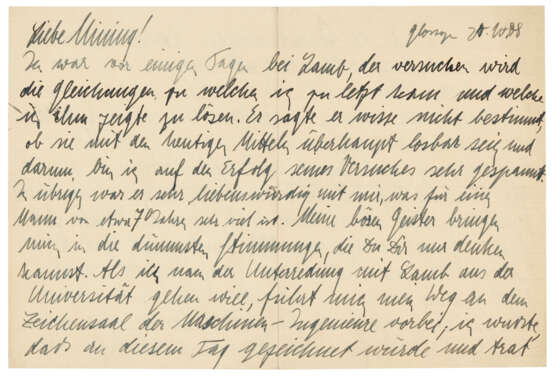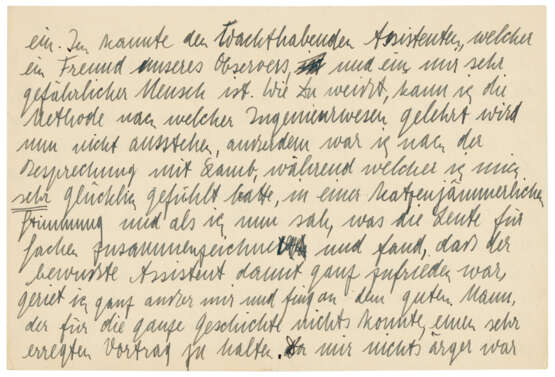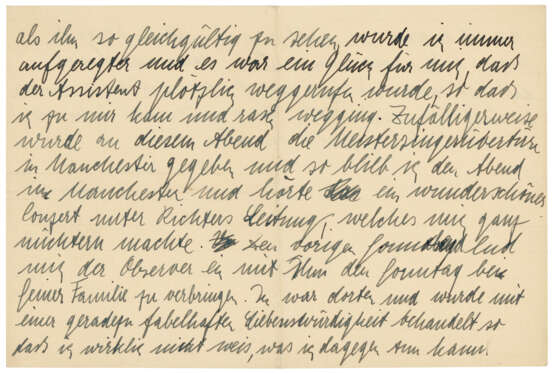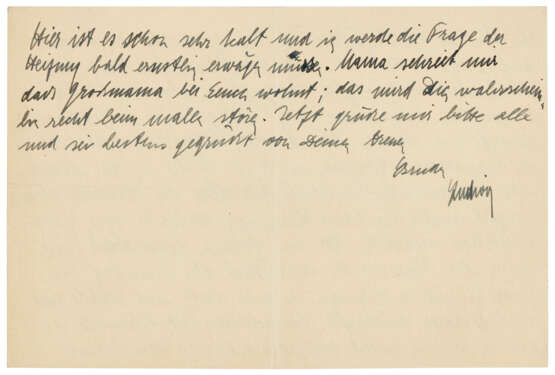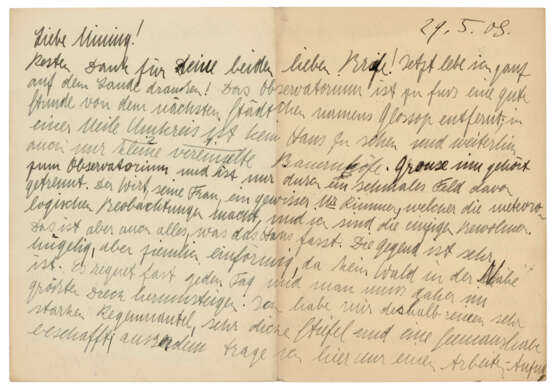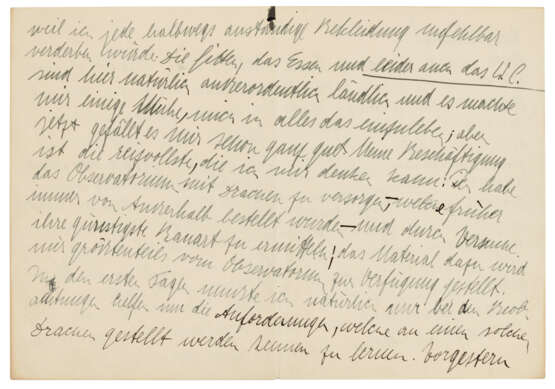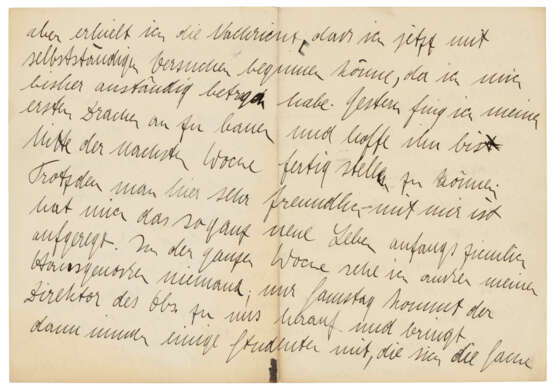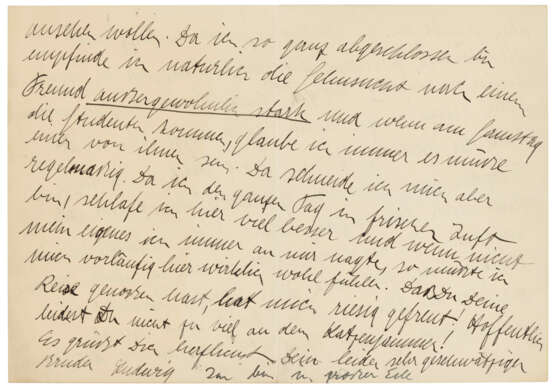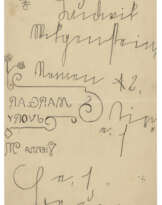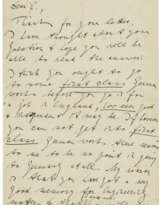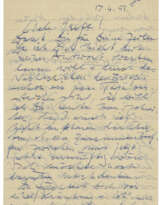ID 1109109
Lot 308 | Ludwig Wittgenstein (1889-1951)
Estimate value
£ 7 000 – 10 000
Two autograph letters signed (‘Ludwig’) to ‘Mining’ [Hermine Wittgenstein], Glossop, 29 May and 20 October 1908
In German. 8 pages in total, 141 x 211mm and 157 x 225mm. Provenance: Sotheby's, 18 & 19 May 1989, lot 353.
Wittgenstein’s earliest surviving letters from England back home to his sister, describing his aeronautical experiments with kites and experience as an engineering student at the University of Manchester; the first letter unpublished. In May 1908, Wittgenstein gives his initial impressions of working at the Glossop observatory, where he and a Mr Rimmer, a meteorologist and observer, are the only ones living in a secluded guesthouse. He takes issue with the weather – for which he has had to buy a raincoat and boots – and the living conditions (‘the customs, the food and unfortunately the toilet facilities too are, of course, extremely rustic here and it took some effort for me to get accustomed to it all’) and finds himself in need of a friend, but professes himself very pleased with his new role: ‘My job is the most delightful I can imagine: I supply the observatory with kites, which had hitherto been ordered elsewhere, and through experiments determine the most favorable design [...] In the first few days, of course, I only helped with the observations in order to get to know the demands placed on such a kite. But the day before yesterday I received the news that I can now start with independent experiments, since I have performed well so far. Yesterday I started building my first kite’. By October, he was rather more settled, making friends and causing trouble: he informs his sister that he recently spent time with [Sir Horace] Lamb, who 'is going to attempt to solve the equations which I most recently came up with [...] He said he doesn't know for sure whether they are solvable with today's methods', but that on leaving him – 'My evil spirits put me in the stupidest of moods imaginable' – he took a detour via the university's [of Manchester] machine engineers' draught room, where he almost found himself in an altercation with the assistant on duty: 'As you know, I can't stand the method by which engineering is taught'. Thankfully, he heard a very beautiful production of Die Meistersinger in Manchester that same evening, 'which restored my equanimity entirely', though he reports that it is very cold where he is already: 'I will soon have to give some serious thought to the question of heating'.
After graduating from his studies in mechanical engineering at Berlin’s Technische Hochschule in May 1908, Wittgenstein moved to the University of Manchester to pursue his interest in the budding science of aeronautics. He began by experimenting on the design of kites at a meteorological observation centre near Glossop, in Derbyshire, before registering as a research student at the department of engineering. The first of these letters, the earliest recorded to his sister from England, was written just days after his arrival in Glossop. In 1912, at the advice of Bertrand Russell, he abandoned his studies in aeronautical engineering in favour of philosophy.
| Address of auction |
CHRISTIE'S 8 King Street, St. James's SW1Y 6QT London United Kingdom | |||||
|---|---|---|---|---|---|---|
| Preview |
| |||||
| Phone | +44 (0)20 7839 9060 | |||||
| Buyer Premium | see on Website | |||||
| Conditions of purchase | Conditions of purchase |
